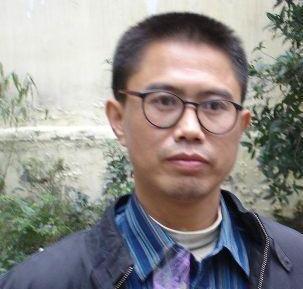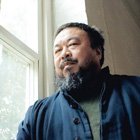 It seems that China is afraid of events in the North Africa and Middle East and does not want to let the spirit of freedom to spread over China. Online calls for China to stage its own ‘Jasmine Revolution’ following protests in other countries have prompted a new wave of arrests of Chinese activists.
It seems that China is afraid of events in the North Africa and Middle East and does not want to let the spirit of freedom to spread over China. Online calls for China to stage its own ‘Jasmine Revolution’ following protests in other countries have prompted a new wave of arrests of Chinese activists.
Authorities afraid of ‘Jasmine Revolution’?
Amnesty International says this wave of arrests is the heaviest one for several years. The sweep is the worst since 2009 when thousands were detained following deadly riots in Urumqi, capital of the Xinjiang Uyghur Autonomous Region.
More than 100 activists, according to Amnesty International, many of them active on Twitter and blogging networks, have been detained, subjected to monitoring and intimidation by the security forces, or have gone missing since late February.
“The authorities are not only detaining seasoned dissidents; they are trying to silence a whole new generation of online activists” said Catherine Baber, Amnesty International’s Deputy Director for the Asia-Pacific.
China’s calls for a ‘Jasmine Revolution’ in February consisted of online instructions to ‘stroll’ through designated public places on Sunday afternoons. Faced with a large state security presence, no significant gatherings took place.
‘Netizens’ detained
Some 24 activists were detained on security charges such as ‘subverting state power’, some for as little as mentioning the ‘Jasmine Revolution’ on the micro-blogging website Twitter.
‘subverting state power’, some for as little as mentioning the ‘Jasmine Revolution’ on the micro-blogging website Twitter.
They have included ‘netizens’ who have never been detained before and have only been active online. Many young Chinese bloggers and tweeters refer to themselves as ‘netizens’, ie. active citizens on the internet, rather than as ‘activists’.
22 more people were detained without charge or under house arrest, including prominent human rights lawyers active on blogging platforms and Twitter, such as Teng Biao, Jiang Tianyong and Feng Zhenghu.
At least 69 further activists and netizens were detained briefly, subjected to police surveillance and controls, or have disappeared.
Liang Haiyi, a female internet activist nicknamed ‘Miaoxiao’, has been detained in Harbin, Heilongjiang province and charged with ‘subversion of state power’ for posting information about the ‘Jasmine Revolution’ on Chinese social networking platform QQ. Charges like this have regularly resulted in hefty prison terms for peaceful activists.
Jailed for 10 years for critical articles A veteran democracy activist Liu Xianbin (left) was jailed for 10 years on 25 March for writing articles critical of the government.
A veteran democracy activist Liu Xianbin (left) was jailed for 10 years on 25 March for writing articles critical of the government.
“Ten years imprisonment for writing articles is an appalling sentence, and a travesty of justice” said Catherine Baber, Amnesty International’s Deputy Director for the Asia-Pacific. “Liu Xianbin is not guilty of any crime. He is a prisoner of conscience and should be released immediately.”
Liu Xianbin was convicted by a court in Sichuan province of ‘inciting subversion of state power’ in a trial that lasted only a few hours.
This is the third time Liu Xianbin has been imprisoned for his political beliefs and activism.
After his last release from prison in late 2008, Liu became a public signatory to the ‘Charter 08’, a proposal for legal and political reform that was co-authored by Nobel Laureate Liu Xiaobo.
He also published numerous articles online and in journals about democracy and human rights, which were critical of Chinese government repression.
Arrested again in June 2010, the high-profile dissident had been out of prison for less than two years. Local activists believed his arrest was a punishment for his continued activism.
Liu has previously served nine years of a 13-year sentence for ‘subverting state power’ due to his CDP activism in the 1990s, and two and a half years after his participation in the student democracy movement of 1989.
1990s, and two and a half years after his participation in the student democracy movement of 1989.
Prominent blogger missing
Chinese-born former diplomat Yang Hengjun (right), an Australian national, a political blogger and commentator Yang Hengjun informed his blog administrator in a phone call on 27 March that he was at Guangzhou Airport in southern China, being followed by three men.
Since then his whereabouts are unknown. Chinese government spokespeople have so far denied knowledge of Yang’s whereabouts in response to requests from the Australian government.
More than 20 activists, lawyers and bloggers are being held without charge, such as blogger Gu Chuan, who has been held in incommunicado detention for a month in Beijing. He might be at risk of torture and ill-treatment.
Catherine Baber says Amnesty International fears the Chinese authorities seem to be moving the goal posts to treat any peaceful expression of support for reform as ‘subversion’.
Ai Weiwei suspected of economic crimes
The detention of China’s most famous artist and political critic Ai Weiwei (below) is a troubling development in a widening crackdown on dissent.
Police detained Ai Weiwei at Beijing airport on 3 April. His wife and several members of his studio staff were also briefly detained on the weekend.
“Ai Weiwei was not even involved in any call for ‘Jasmine’ protests. There seems to be no reason whatsoever for his detention, other than that the authorities are trying to broadcast the message that China’s time for open dissent has come to an end,” said Sam Zarifi, Amnesty International’s Director for the Asia-Pacific. “Holding Ai Weiwei takes this to another level.”
“I f the authorities are so bold as to grab this world-renowned artist in broad daylight at Beijing airport, it’s frightening to think how they might treat other, lesser known dissidents,” he added.
f the authorities are so bold as to grab this world-renowned artist in broad daylight at Beijing airport, it’s frightening to think how they might treat other, lesser known dissidents,” he added.
On 7 April Chinese authorities confirmed they had detained Ai Weiwei pending investigation for “economic crimes.”
“According to my understanding, Ai Weiwei is suspected of economic crimes, and the police are in the process of investigating this,” foreign ministry spokesman Hong Lei told a regular news conference in Beijing.
“It has nothing to do with human rights or freedom of expression. China is ruled by law, and proceeds with its affairs according to law,” Hong said.
Related articles:
Volatile developments in Middle East
January: arrested writers, journalists, bloggers in Iran, Tunisia, Yemen and Belarus
China: the art of web censorship
The Nobel peace Prize to Liu Xiaobo highlights the fight for democracy
Writer Yu Jie ignores threats of prison to publish a book about Chinese Premier
China: Dissident writer’s health declining
China: son of Uyghur activist Rebiya Kadeer tortured in prison, call for action
Amnesty International Norway calls China to follow Google
Belarus follows China in curbing freedom of information on the internet
Iran: one year after elections – importance of internet and small media





